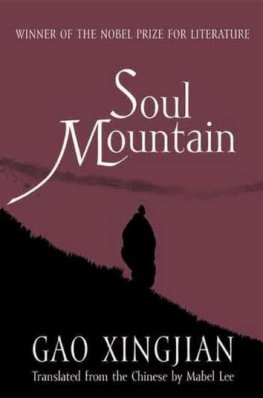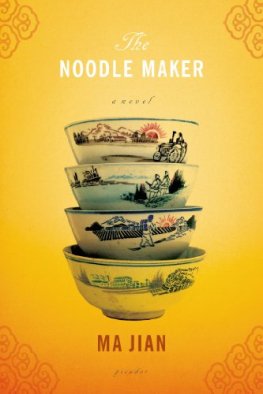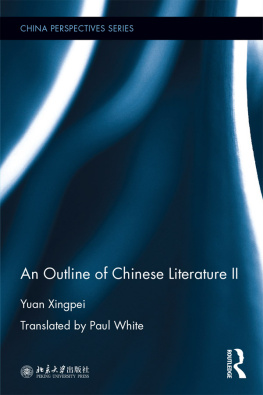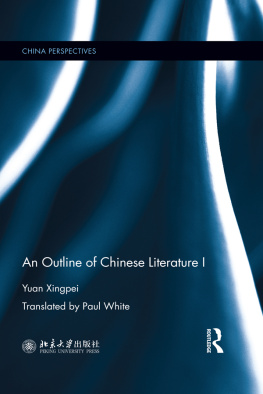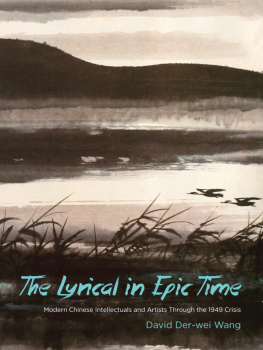Gao Xingjian
Soul Mountain
Gao Xingjian was born on 4 January 1940 in war-torn China soon after the beginning of the Japanese invasion. He completed secondary and tertiary studies in the Peoples Republic of China (established in 1949 after the Communist victory in the civil war against the Nationalists), graduating with a major in French from the Beijing Foreign Languages Institute in 1962. Gao Xingjian came to national and international prominence as a writer and critic during the early 1980s for his experimental works of drama, fiction and theory that contravened the guidelines established by the ideologues of the Chinese Communist Party. At the time, China was just beginning to emerge from the throes of the Cultural Revolution (19661976), a decade during which the self of the individual was virtually annihilated from intellectual and creative activities. Basic human instincts, sensitivities, thinking, perceptions and judgements were repressed and stunted, and extreme forms of socialist-realist and romantic-revolutionary representations of reality became the compulsory basis of all creative endeavours: literature and the arts therefore became representations of a distorted reality.
The end of the Cultural Revolution and the implementation of considerably more liberal policies meant that Gao Xingjian was able to publish, despite continuing aftershocks from those times. It also meant that he was able to travel abroad as a member of two writers delegations in 1979 to France, and in 1980 to Italy. From 1980 to 1987, he published short stories, novellas, critical essays and plays in various literary journals, as well as four books: A Preliminary Discussion of the Art of Modern Fiction (1981), a novella A Pigeon Called Red Beak (1985), Collected Plays of Gao Xingjian (1985), and In Search of a Modern Form of Dramatic Representation (1987). In addition, three of his plays were staged at the Beijing Peoples Art Theatre: Absolute Signal (1982), Bus Stop (1983) and Wild Man (1985). However, events in Gao Xingjians life during those few years made him resolve to fully commit himself to the creative expression of his own reality, and no authority other than that of his self would again be allowed to dictate his judgements of that reality.
In 1987, when Gao Xingjian left China to take up a D.A.A.D fellowship in Germany, he did not intend to return. He had taken with him the most important thing in his life: the manuscript of a novel he had begun in Beijing in the summer of 1982. This novel was Lingshan which he subsequently completed in September 1989 in Paris (where he now resides and has French citizenship) and published in Taipei in 1990. Gran Malmqvist, whose translations of ten of Gao Xingjians plays were published as a set by the Swedish Royal Dramatic Theatre in 1994, published the Swedish version of the novel as Andarnas berg, in 1992; and Nol and Liliane Dutraits French version, La Montagne de lme, was published in 1995. For the English version, the title Soul Mountain has been used.
Soul Mountain is a literary response to the devastation of the self of the individual by the primitive human urge for the warmth and security of an other, or others, in other words by socialized life. The existence of an other resolves the problem of loneliness but brings with it anxieties for the individual, for inherent in any relationship is, inevitably, some form of power struggle. This is the existential dilemma confronting the individual, in relationships with parents, partners, family, friends and larger collective groups. Human history abounds with cases of the individual being induced by force or ideological persuasion to submit to the power of the collective; the surrender of the self to the collective eventually becomes habit, norm convention and tradition, and this phenomenon is not unique to any one culture.
In traditional China, the philosophy of Confucius was developed into an autocratic ideology alongside infrastructures that allowed it to permeate all levels of society, and the individual after birth was conditioned to be subservient to a clearly defined hierarchy of authorities. Unless intent on challenging those authorities and facing the consequences, nonconformists had the possibility of living the life of the recluse or taking temporary or long-term refuge in Buddhist monasteries or Daoist retreats, although as institutionalized orders, they too constitute collectives. Alternatively, the nonconformist could remain in conventional society and survive by feigning madness or could achieve freedom, transcendence and self-realization in literary and artistic creation. However, these options were gradually eroded in China from the early years of the twentieth century as self-sacrifice was promoted first in the name of patriotism and then also in the name of the communist revolution which promised equality and social justice. Self-sacrifice became an entrenched habit that facilitated, aided and abetted the extremes of social conformity demanded by the Cultural Revolution which was engineered by sophisticated modern strategies for ideological control. Writers and artists for whom creation was the expression of the self were relentlessly and effectively silenced.
During the 1960s and 1970s, Gao Xingjians irrepressible urge for artistic self-expression resulted in several hundred works of prose, plays and poems. He was aware that what he wrote could not be published, and that even as unpublished works they could be used as evidence against him for failing to comply with prescribed guidelines. To hide his writings became increasingly difficult, and he finally burnt all of them during the height of the Cultural Revolution rather than face the consequences of having them found.
As noted above, Gao Xingjian was able to publish a substantial number of works during the 1980s, but not without considerable anxiety. The publication of A Preliminary Discussion of the Art of Modern Fiction in 1981 resulted in his being criticized for promoting modernist ideas borrowed from the decadent capitalist West and he was placed under surveillance. Nonetheless, his debut as a playwright occurred in 1982 and took Beijing by storm: Absolute Signal was staged over a hundred times to packed performances at the Beijing Peoples Arts Theatre. However, those were politically ambiguous times and in the following year, 1983, a ban was placed on the performance of Bus Stop, although one special performance was ordered so that criticisms could be written up. As the author, Gao Xingjian was singled out for criticism during the oppose spiritual pollution campaign of that year, and he was banned from publishing: a senior Party member had declared Bus Stop the most pernicious work since the establishment of the Peoples Republic. It was at this time, during a routine health check, that he was diagnosed with lung cancer, the disease that had killed his father a couple of years earlier. He resigned himself to imminent death until a later X-ray revealed that a wrong diagnosis had been made. He returned from the transcendent tranquillity he had experienced at the brink of death to the reality of life and the rumour that he was to be sent to the notorious prison farms of Qinghai province. He made a quick decision to flee Beijing immediately, and taking an advance royalty on his proposed novel, he absconded to the remote forest regions of Sichuan province and then wandered along the Yangtze River from its source down to the coast. By the time the oppose spiritual pollution campaign had subsided and it was safe for his return to Beijing, he had travelled for five months over 15,000 kilometres of China.
These events of 1983 form the autobiographical substance of Soul Mountain

